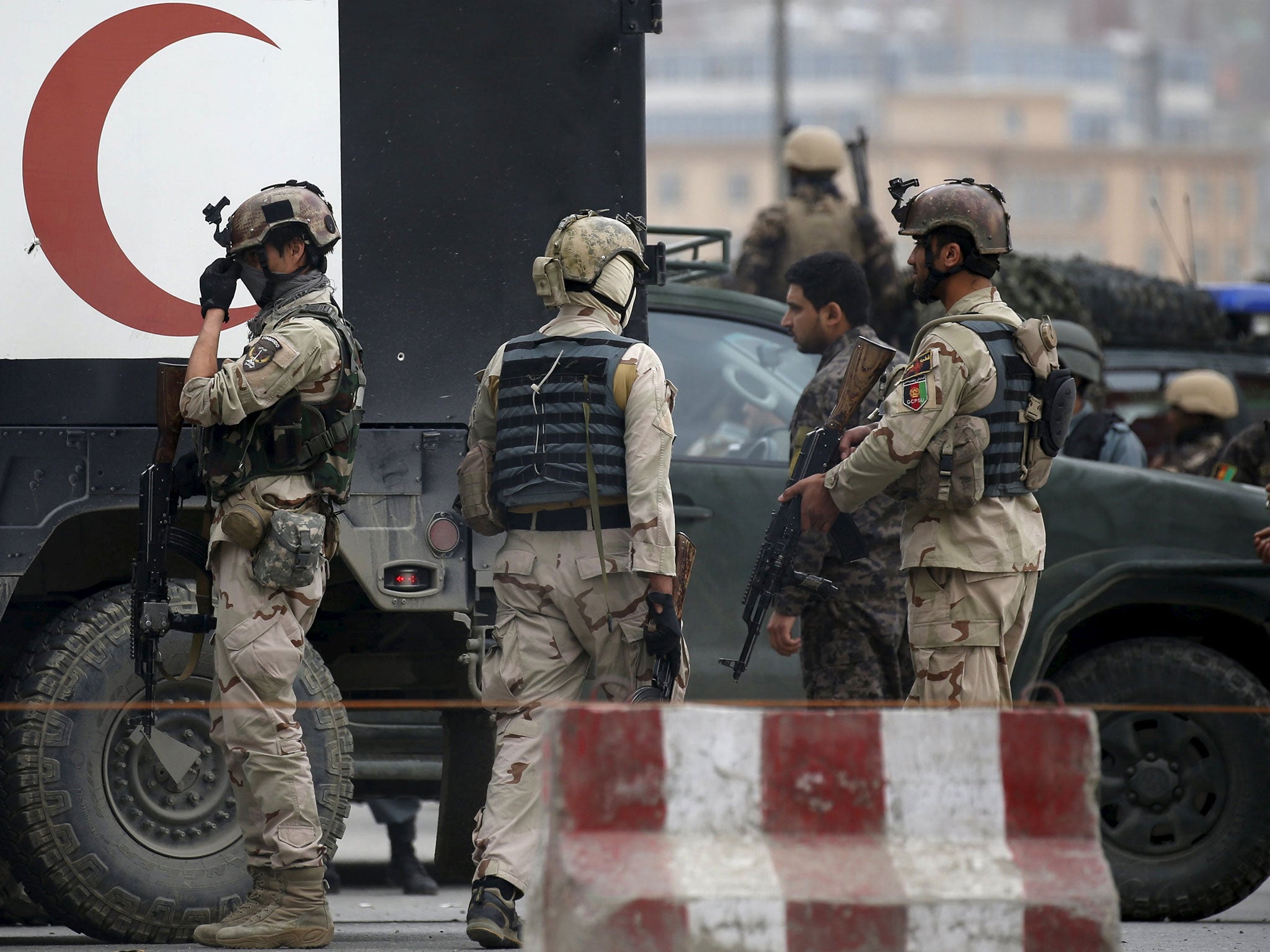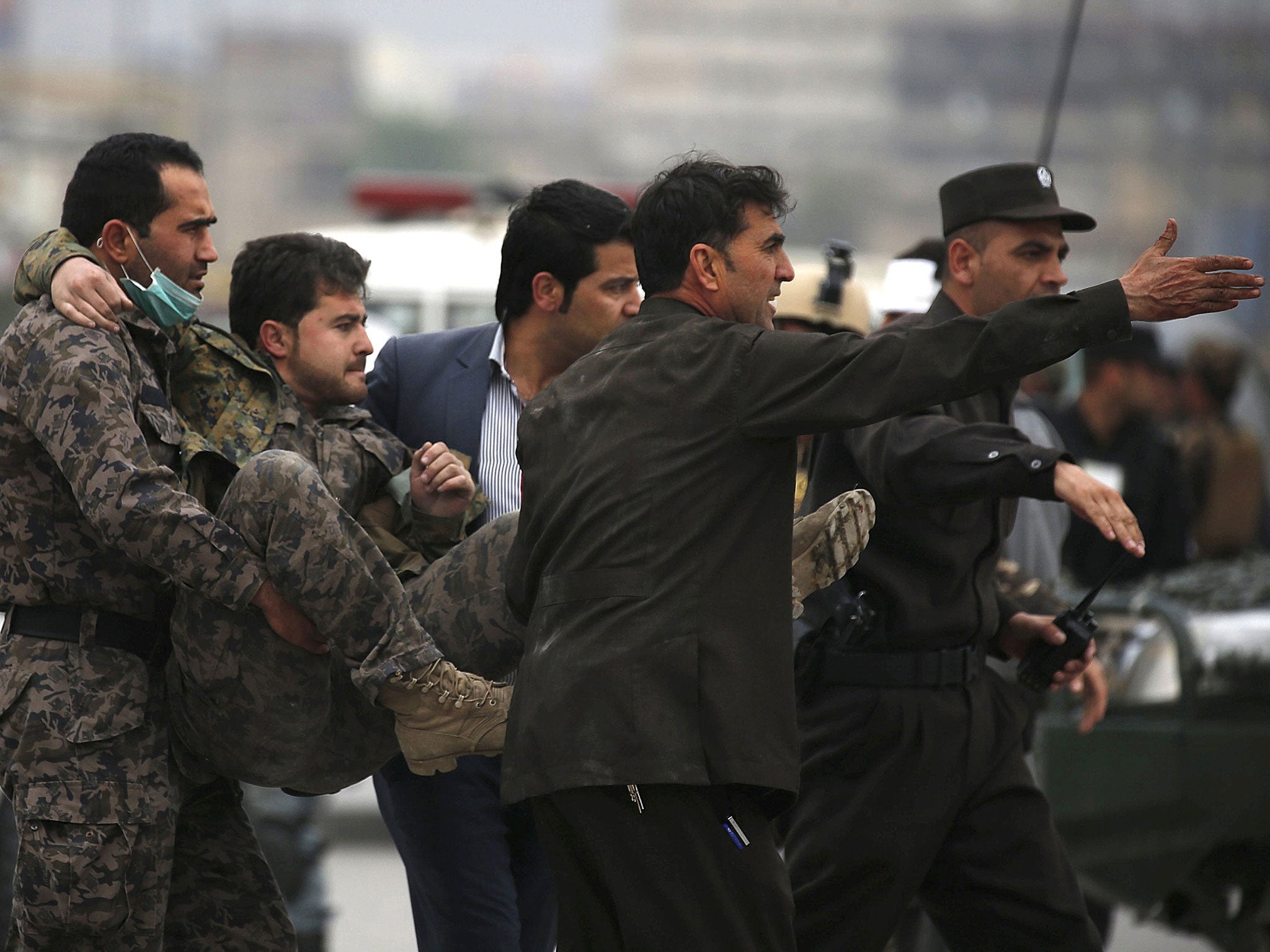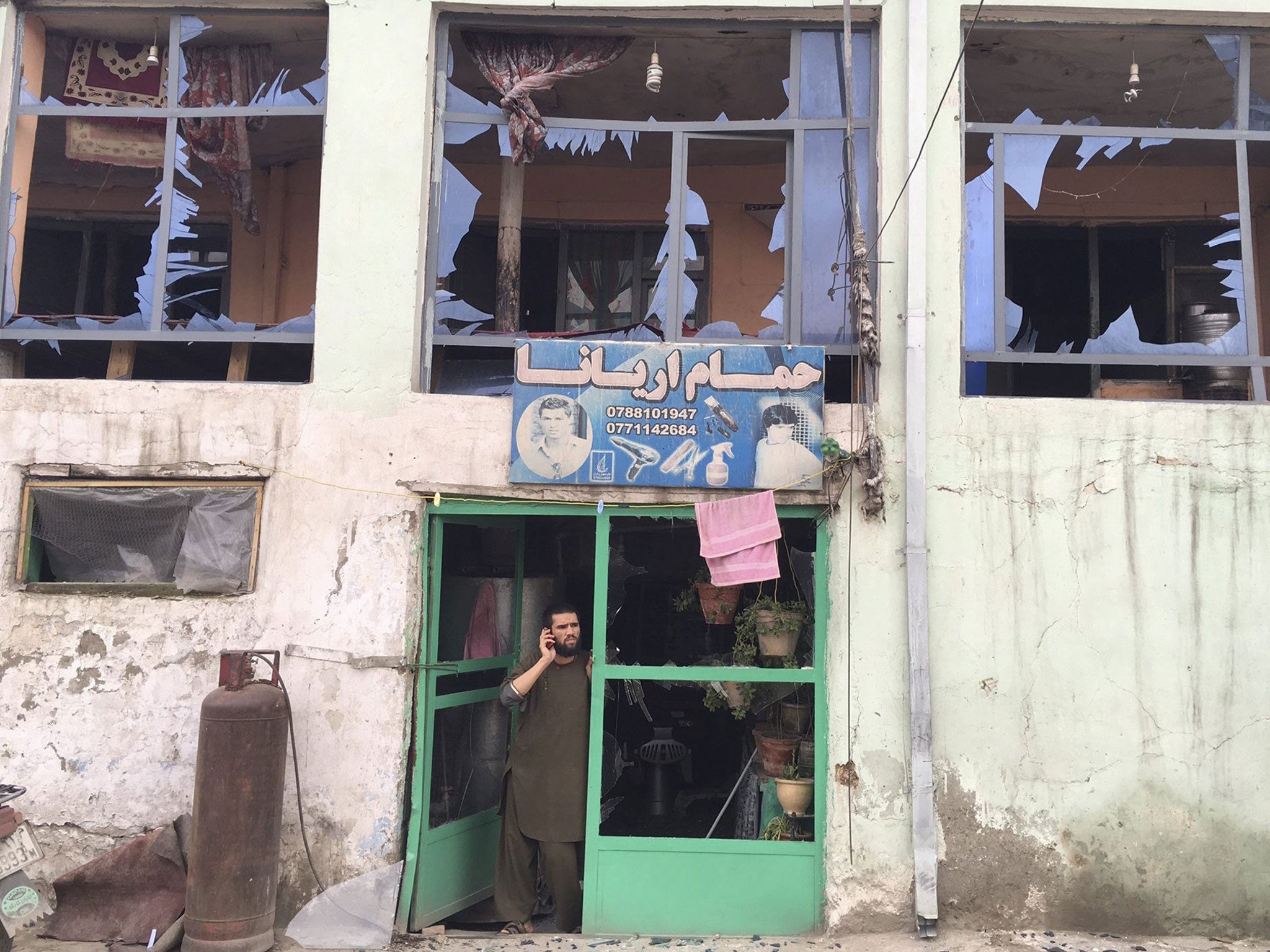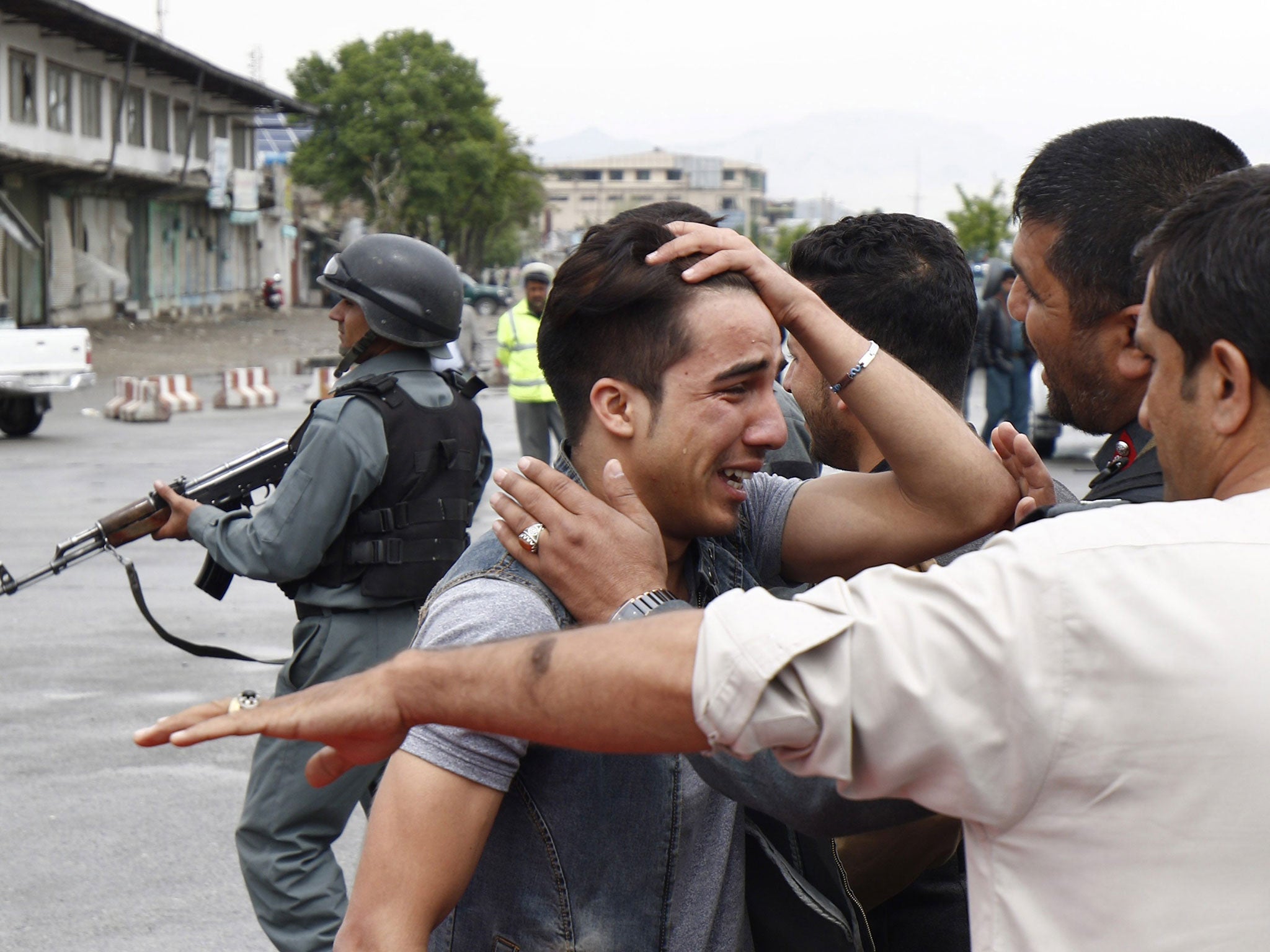Kabul bombing: At least 28 people killed and more than 300 injured in Taliban suicide attack on security agency
The attack came during Tuesday morning's rush hour in the Afghan capital

Your support helps us to tell the story
From reproductive rights to climate change to Big Tech, The Independent is on the ground when the story is developing. Whether it's investigating the financials of Elon Musk's pro-Trump PAC or producing our latest documentary, 'The A Word', which shines a light on the American women fighting for reproductive rights, we know how important it is to parse out the facts from the messaging.
At such a critical moment in US history, we need reporters on the ground. Your donation allows us to keep sending journalists to speak to both sides of the story.
The Independent is trusted by Americans across the entire political spectrum. And unlike many other quality news outlets, we choose not to lock Americans out of our reporting and analysis with paywalls. We believe quality journalism should be available to everyone, paid for by those who can afford it.
Your support makes all the difference.At least 28 people have been killed and more than 300 wounded in a suicide bombing and gun attack in Kabul.
Civilians and members of the Afghan security forces were among those caught in the assault, which was claimed by the Taliban.
The bombing, during Tuesday morning’s rush hour, targeted the headquarters of a security agency in central Kabul, near the ministry of defence and embassies.

There were also reports of gunfire amid claims that Taliban militants had fought their way into the National Directorate of Security (NDS), Afghanistan’s main intelligence agency.
Afghanistan's health ministry said that casualty estimates were expected to rise as recovery work continued.
A propaganda statement issued by the Taliban said the attack targeted Department 10, a unit protecting government ministers and MPs, as part of its previously announced “spring offensive”.
It claimed a car bomb was detonated at the gates of an NDS compound at 9am local time (5.30am BST) before gunmen rushed inside.

The area was closed off by security forces as fighting continued and dozens of ambulances were seen at the scene.
Witnesses described chaotic scenes after the blast as hundreds of Afghans rushed to donate blood for the victims.
“I was here when a huge explosion happened,” said Amir, who works in a nearby restaurant. “I saw three boys with severe head injuries. My uncle was injured and my brother is missing, I don't know what happened to him.”
It was the worst single militant strike in Kabul since 2011, when about 60 people died in a suicide blast outside a mosque, and will reinforce concerns in Afghanistan and the West that the country is being dragged into a worsening spiral of violence.
Mr Rahimi said one attacker had tried to slip into the NDS building through a destroyed wall after the blast, but he was discovered and killed.
The health ministry said 327 injured victims, including women and children, had been taken to local hospitals.
A spokesperson at the presidential palace, just a few hundred metres from the blast, condemned the attack.
“Such cowardly terrorist attacks will not weaken the will and determination of Afghan security forces to fight against terrorism,” he added.
A tweet from President Ashraf Ghani said the assault “clearly shows the enemy’s defeat in face-to-face battle” with government forces.
Philip Hammond also tweeted his support, writing: "I condemn the bomb attack in Kabul, thoughts are with families. The Taliban continues senseless attacks against civilians. The UK stands with Afghanistan."
The American embassy in Kabul released a statement calling for continued efforts in the government's peace process.

"Afghanistan deserves peace and security, not attacks that victimise parents taking their children to school, workers on their morning commute, and people who have stepped forward to help defend their fellow citizens," a spokesperson said.
The Taliban controls swathes of Afghanistan, where Isis is also trying to expand its presence amid deteriorating security.
Islamists have been gathering strength since the bulk of British, American and Nato forces withdrew in 2014, sparking an exodus by hundreds of thousands of refugees and pleas by local officials for help to combat insurgents.
Afghanistan’s defence minister, Masoom Stanikzai, warned last week that al-Qaeda is also gathering strength in the country and “preparing themselves for bigger attacks”.
Additional reporting by agencies
Join our commenting forum
Join thought-provoking conversations, follow other Independent readers and see their replies
Comments